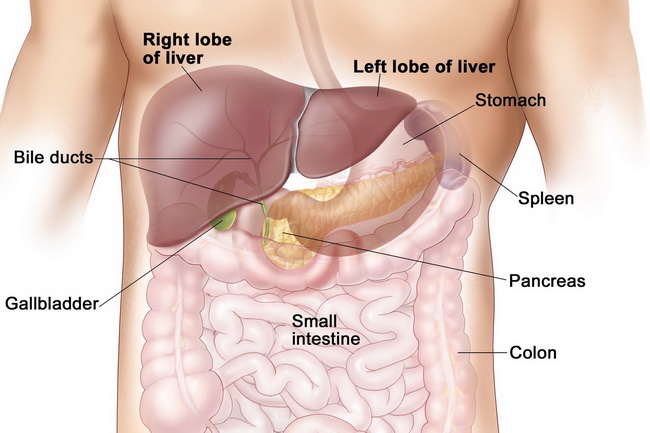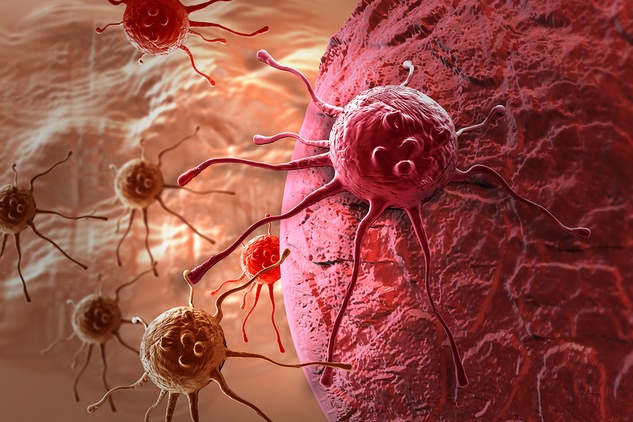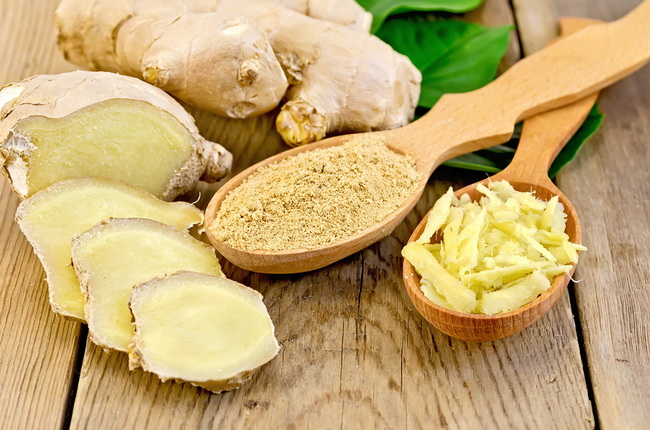- Make It Yourself Lavender Heart-Shaped Bath Bombs!
- 20 Things You Never Knew About “Down There”
- 12 Best Foods For Those Suffering From Arthritis Pain
- 12 Personal Hygiene Mistakes Almost Everyone Makes (Mom Never Told You About #4!)
- 15 Medicinal Plants And Herbs From The Cherokee People
- 12 Mind-Blowing Benefits Of Drinking Coconut Water During Pregnancy
- 12 Outstanding Winter Foods That Won’t Fatten You Up Like A Christmas Turkey
This Organ That No One Thinks About Is More Important Than You Know

Photo credit: sicklesense.com
Most people never give their spleen a second thought — until there is a problem. There are many articles about the liver and gallbladder, even the kidneys, but when was the last time you read anything about your spleen? Your spleen performs very important functions in the body, and when it doesn’t work properly, you can be in for some serious health problems.
When your spleen is working properly and is a normal size, you won’t feel it, and you won’t even be aware that it is there. But once enlarged, this organ will cause some serious problems. Your spleen generally becomes enlarged for several reasons, including liver infection or even cancer.
Your spleen can be found in the upper left part of the abdomen, directly under the ribcage that protects it. It is above your stomach and about the size of a fist. Your spleen is part of your lymph system and is designed to help cleanse the body of infections and other foreign matter in conjunction with the immune system. It filters your blood and removes viruses and bacteria.
Although you can live without your spleen, your ability to fight infection will be seriously reduced. Your liver would take over some of the functions of the spleen if you should have to have it removed, but your immune system will forever be compromised. This is why you should take good care of your spleen — so that it can take good care of you.
Let’s look at some of the problems the spleen can develop.
1. Swollen or Enlarged Spleen
When the spleen becomes enlarged, it is not considered a separate condition, but is often the results of an underlying problem such as cancer of the blood, chronic infection, or anemia. Because a swollen spleen is a symptom of disease, it can’t be overlooked.
Common symptoms of a swollen spleen are:
- A sensation of being full after eating a small amount or even without eating. This occurs because the enlarged spleen is now pressing on the stomach.
- Exhausting fatigue
- Frequent infections
- Weight loss
- Pain in the upper left part of the abdomen. This is sometimes confused with stomach pain, but if it spreads to the left shoulder and becomes more severe when you take a deep breath, this is due to an enlarged spleen.
- Anemia
- Easy bleeding
If you are experiencing these feelings or symptoms, you should notify your doctor.
Continue to Page 2

Photo credit: bigstock
2. Cancer of the Spleen
Cancers that originate in the spleen are very rare. When they do occur they are usually a type of Lymphoma, a blood cancer that attacks the body’s lymph system. As we said, these are rare. Most spleen cancers are due to cancer that starts elsewhere and invades the spleen. Typical cancers that spread to the spleen are lung cancer, stomach cancers, and leukemia.
Common symptoms of spleen cancer are:
- Many of the same symptoms of an enlarged spleen
- Cold or flu-like symptoms such as fever, headaches, body aches
- Pain in the upper left part of the abdomen
- Lack of appetite due to feeling full
SEE ALSO: 15 Amazing Herbs to Support This One Vital Organ
3. Ruptured or Lacerated Spleen
A ruptured spleen is a life-threatening condition that requires immediate emergency treatment due to internal bleeding. The spleen can rupture or become lacerated by a strong blow to the abdomen, which might happen in a car crash, sporting accident, or even a fist fight. Occasionally the spleen is merely bruised, and it will heal with rest over a period of time. However, if you experience a powerful blow to the abdomen, you should get your spleen checked out by your doctor to be certain it has not ruptured.
Common symptoms of a ruptured spleen are:
- Extreme tenderness in the abdomen when touched
- Severe pain in the upper left part of the abdomen
- Feeling dizzy or lightheaded
- Confusion
- Fainting
- Blurry vision or tunnel vision
Most of these symptoms are due to internal bleeding. A ruptured spleen will require emergency surgery. See your doctor immediately if you had any type of injury or blow to the abdomen and then begin to experience the symptoms above.
Continue to Page 3

Photo credit: bigstock.com
Traditional Chinese medicine believes that the spleen is the home of emotional worries and that problems with the spleen are linked to stress and anxiety. Chinese practitioners believe that when the spleen does not receive proper nutrition, it can result in problems with the blood and the energy of life, called qi. The Chinese believe that eating a proper diet and consuming of the right herbs can improve the health of the spleen, which will reduce your anxiety levels and relieve stress.
The best ways to protect your spleen and allow it to function properly are:
- Eat carb-rich vegetables – such as sweet potatoes, yams, pumpkins, beans, winter squash, green peas, carrots, and rutabagas. These easily digested foods are nurturing to the spleen.
- Eat slowly – when you relax and chew your food properly during mealtime, it gives your body time to digest foods.
- Eat warm meals – food that has been cooked and is warm takes a great deal of stress off the digestive system. Precooked and warm foods such as stew, soup, and curries are easy for your body to absorb and make much less work for the spleen.
- Add some warming spices either to your meals or before your meals to crank up that digestive fire. Try spices such as ginger, cardamom, cinnamon, or black pepper. These will increase the spleens ability to process food properly.
- Eat small amounts of protein – avoid dairy products except for yogurt, organic butter, and raw, or at least organic, milk. Instead, eat fatty fish, chicken, lamb, or turkey.
Also, you should consider practicing mindful mediation and deep breathing exercises to help reduce stress, relax the body, and relieve mental exhaustion.
References:
































